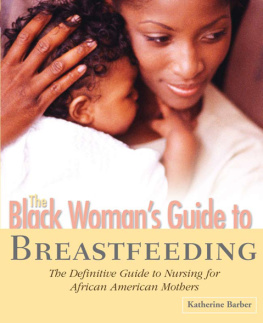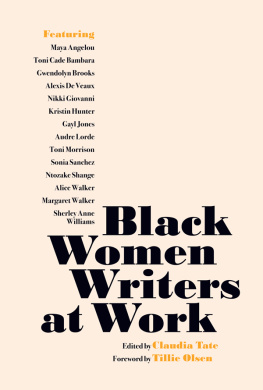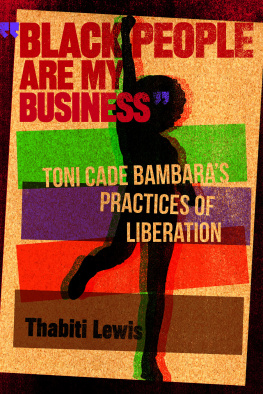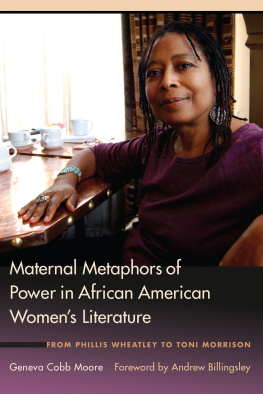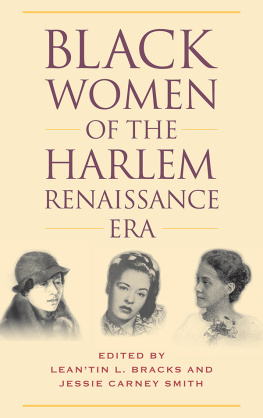The Grasp That Reaches
Beyond the Grave
The Grasp That Reaches
Beyond the Grave
The Ancestral Call in Black Womens Texts
Venetria K. Patton
Cover art: Adara (ah DAH rah): Exalted One (2008) by Delita Martin.
Published by State University of New York Press, Albany
2013 State University of New York
All rights reserved
Printed in the United States of America
No part of this book may be used or reproduced in any manner whatsoever without written permission. No part of this book may be stored in a retrieval system or transmitted in any form or by any means including electronic, electrostatic, magnetic tape, mechanical, photocopying, recording, or otherwise without the prior permission in writing of the publisher.
For information, contact State University of New York Press, Albany, NY
www.sunypress.edu
Production by Diane Ganeles
Marketing by Anne M. Valentine
Library of Congress Cataloging-in-Publication Data
Patton, Venetria K., 1968-
The grasp that reaches beyond the grave : the ancestral call in black women's texts / Venetria K. Patton.
p. cm.
Includes bibliographical references and index.
ISBN 978-1-4384-4737-7 (hardcover : alk. paper)
1. American literatureAfrican American authorsHistory and criticism. 2. American literatureAfrican influences. 3. African American womenIntellectual life. 4. African Americans in literature. I. Title.
PS153.N5P37 2013
810.9'928708996073dc23
2012029400
10 9 8 7 6 5 4 3 2 1
For my son, Hollis
Contents
Introduction
Revising The Legacy of Kinlessness Through Elders and Ancestors
Chapter 1
Othermothers as Elders and Culture Bearers in Daughters of the Dust and The Salt Eaters
Chapter 2
Ancestral Prodding in Praisesong for the Widow
Chapter 3
Ancestral Disturbances in Stigmata
Chapter 4
Beloved: A Ghost Story with an Ogbanje Twist
Chapter 5
The Child Figure as a Means to Ancestral Knowledge in Daughters of the Dust and A Sunday in June
Conclusion
Looking Backward and Forward: The Ancestral Presence in Speculative Fiction
Acknowledgments
This book has been a long time in coming, so I must recognize all of those who assisted me and cheered me along the way. First and foremost, is my partner, Ronald J. Stephens, who was with me before I even knew this was a book. Thank you for always believing in me, encouraging me, and for reading my work and talking things through. I have had the good fortune to have wonderful colleagues who have read portions of this project in its various stages. Much thanks to Wendy Flory, Carol E. Henderson, Maureen Honey, Bill V. Mullen, and Aparajita Sagar. I am particularly appreciative of the insightful comments provided by my English Department head, Nancy J. Peterson, because I know so well how difficult it is to balance administrative duties and scholarly activities, but Nancy has not only emulated how to do this but encouraged me in my own balancing act. I also must give special mention to my writing group, Marlo David and Jennifer Freeman-Marshall; it was a pleasure working through our manuscripts together. I must also make special mention of Viktor Gecas, former head of Purdues Sociology Department. Viktor always encouraged me with regard to my progress on my manuscript and it was one of our conversations that led to my aha moment regarding Kongo cosmology and the women I was researching. I also must recognize the support I have received from my deans, Irwin Weiser, John Contreni, and Toby Parcel. They all were supportive of my work on this project in terms of course releases and the sabbatical that made all the difference. Special thanks to Delita Martin for the art that graces this cover. And of course, I must recognize James Peltz, SUNY Press co-director, for continued faith in my research; my editor, Beth Bouloukos who kept things going; the anonymous reviewers for their excellent comments regarding the manuscript, and everyone at SUNY who brought this project to fruition.
In closing, I thank my son, Hollis, for his patience as I completed this project and my girls, Kiara and Karielle, for keeping me grounded. My family and friends truly kept me sane, especially my mother, Hildegarde Patton, who made everything possible; my cheering section: Frederick, Pinar, Laeres, Christina, Chloe, Lyle-Jehan, Kyle-Roth, and Letiwe; and my sisters in spirit: Zenephia Evans, Carolyn E. Johnson, and Matilda Stokes.
An earlier version of was originally published as Stigmata: Embodying the Scars of Slavery in Imagining the Black Female Body edited by Carol E. Henderson (Palgrave Macmillan, 2010) and is used with permission from Palgrave Macmillan.
Special thanks to the Department of English and the Office of the Vice President for Research at Purdue University for supporting the publication of my research.
Introduction
Revising the Legacy of Kinlessness Through Elders and Ancestors
E lders have traditionally played an important role within African and African American communities. Elders preserve cultural memory and help younger generations navigate the world. However, sometimes the younger generation becomes distant from traditional beliefs and elders must remind them of the importance of tradition and cultural roots. This reliance on elders as guides is particularly evident in matrilineal relationships between mothers and daughters, but also in the bonds shared with grandmothers, aunts, and othermothers. In Black Feminist Thought, Patricia Hill Collins discusses the importance of othermothers and woman-centered networks. She asserts, African and African-American communities have recognized that vesting one person with full responsibility for mothering a child may not be wise or possible. As a result, othermotherswomen who assist bloodmothers by sharing mothering responsibilitiestraditionally have been central to the institution of Black motherhood (119). Several scholars, such as Nancy Tanner, Carol Stack, and Niara Sudarkasa, have noted that [t]he centrality of women in African-American extended families reflects both a continuation of West African cultural values and functional adaptations to race and gender oppression (119). However, Hill Collins admonishes that [t]his centrality is not characterized by the absence of husbands and fathers. Men may be physically present and/or have well-defined and culturally significant roles in the extended family and the kin unit may be woman-centered (119). Therefore, we are not talking about matriarchal families in which mothers head the household, but rather matrifocal societies that emphasize the motherchild bond. According to Deborah Gray White, in matrifocal societies, females in their roleas mothers are the focus of familial relationships (256). Thus texts by black women often emphasize motherchild relationships or other woman-centered bonds because of the significant roles women play in family relations.
This is the case for the texts under discussion heremen are very present in the roles of father, husband, lover, and community leaderhowever, the protagonists of Toni Cade Bambaras The Salt Eaters (1980), Paule Marshalls


